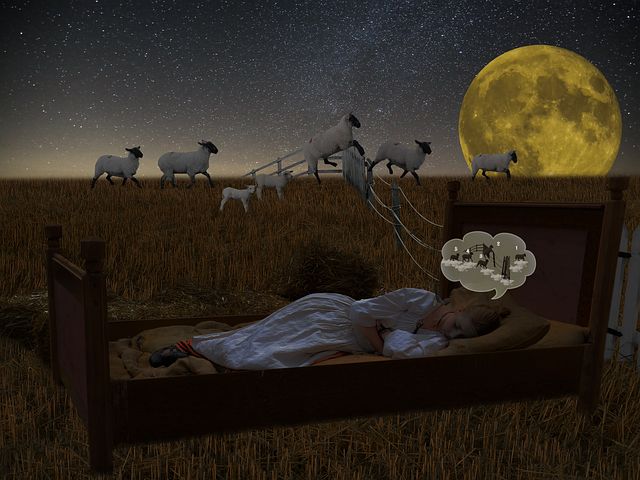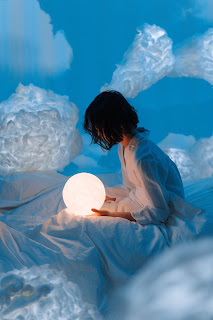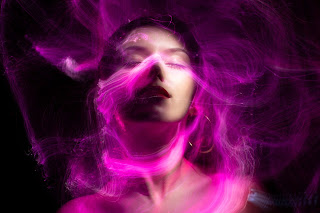And Tacoma, Burlington and Roanoke. Sleep is the true elusive butterfly, flittering so close, teasing, then zipping off to tempt someone else. Sleeplessness taunts young and old, rich and poor, geniuses and dolts, and sooner or later it will flirt with you, too. And when it does, you will be subject to memory issues, mood changes, weakened immunity, risk for diabetes, lower sex drive, accidents, high blood pressure, weight gain, risk of heart disease, poor balance and a partridge in a plum tree. For starters.
Sleep-deprived people have been known to put both contacts in one eye, stick the dustpan in the refrigerator, put on a nice suit with two different shoes, lock the kids outside in the freezing cold and order drive-through food from McDonald’s trash can. A friend of ours from Micanopy who shall go nameless once spent five minutes searching for his cell phone, complaining about it the whole time to his girlfriend who he was talking to on his cell phone. Another old pal finally fell asleep while sitting on the toilet in the middle of the night, his head firmly planted against the wall. He was awakened by a terrified house guest who stumbled in. A third opened his briefcase at an important board meeting to find nothing but a backgammon game and a couple of porn magazines inside.
Sid Caesar was a very popular comedian in the 1950s-60s. He used to do a routine in which he had insomnia, tossed and turned, drove his wife, Imogene Coca, nuts. She insisted he get help so he went to a sleep specialist.
“Honey, you’ll be glad to know the doctor told me just what to do,” he smiled the next night. Then he got in bed, closed his eyes and recited “Goodnight feet, goodnight ankles, etc.,” all the way up his body. Finally, it was a relaxed “Good night, brain,” then a very long pause, preceding an irritated “I SAID GOOD NIGHT, BRAIN!” So much for progressive muscle relaxation.
WHY?
The Mayo Clinic cites a litany of reasons for chronic insomnia. Stress concerns about work or school, poor health, finances, stressful life events and trauma can all lead to problems sleeping, as can inconsistent work schedules, poor sleeping habits, eating too much before bedtime and certain medications. Then, of course, there’s another wonderful prize in the Crackerjack box called Getting Old. People who’ve had little trouble sleeping all their lives pull into Septuagenaria Station and start reaching for the Ambien.
As we age, our bodies produce lower levels of growth hormone, thus leading to a decrease in slow-wave or deep sleep. When this happens, the body also produces less melatonin, leading to more fragmented sleep. We wake up more during the night and often it’s difficult to go back to sleep.
Though science can point out the benefits and problems associated with insufficient amounts of sleep, nobody really knows everything this restorative state does for the body. Recent research posits that proper sleep may contribute to the elimination of toxic neural buildups in the brain and promote plasticity, the brain’s ability to adjust and reorganize from experiences. There’s no argument from anyone, however, that more is better when it comes to sleep and that seven to eight hours nightly is ideal. Researchers studying ganglia cells, which are abundant in the central nervous system, think these cells may be regulating when we nod off and awaken. If they can crack the code, not only will it aid in determining how to sleep better but also shed light on related nighttime mysteries like why we dream. Maybe then Bill Killeen can discover why his dreams keep losing his car.
Ask Mr. Fixit….
“Our sleep patterns change as we get older,” says Laurie Leadley, a clinical sleep educator and owner of the Phoenix, Arizona Valley Sleep Center. Everybody knows the usual would-be aids and cures, but Leadley has a few others you might not think of:
1.---Sleep naked, like Bill Killeen. A study in the Journal of Diabetes earlier this year found that when people slept at lower temperatures they burned more calories, reduced their risk of diabetes and slept better. Sleeping in an environment that is between 60 and 68 degrees Fahrenheit seems to be ideal for getting the best sleep possible. Wearing pajamas can keep the body from reaching this optimal temperature and may lead to overheating during the night.
2.---Use a sunrise-sunset simulator (wakeup) light. There are many lights available that not only simulate dawn but dusk as well. The changing light levels are a sign to your body that it’s time for sleep.
3.---Wear socks to bed. Some of you have figured this one helps but you don’t know why. While a lower overall body temperature is desirable for sleep, warming up the feet causes blood vessels to dilate, redistributing heat through the rest of the body and telling the brain it’s time for sleep.
4.---Spray your pillow with lavender, chamomile or peppermint oil. You might want to ask your bedmate first, but Laurie swears that aroma therapy is a great way to relax and get to sleep. The scents clear sinuses as well as your head, allowing you to sleep better.
5.---Have sex. Just in case you didn’t think she knew what she was talking about, here comes Leadly with some brilliant advice. Unless you’re Gina Hawkins or Ron Thomas, you might want to skip the complex kama sutra positions and stick to the basics so you don’t break any bones.
By age 70, everybody has a plan. Bill doesn’t eat or drink after 6 p.m. most nights, takes 2.5 mg of melatonin and half of a 325 mg Tylenol tablet (which requires a pill-cutter). That’s usually good for six-and-one-half to seven hours of sleep unless the Red Sox closer has blown another one in the top of the ninth.
….Or, Perhaps, Mr. Van Winkle
Fortunately for you, The Flying Pie has a wealth of resources to call upon in sleepless times. Following is some advice from readers who have fought the fight and won. Temporarily, at least.
Stephen Ringer---“Take a brisk ten-minute walk before retiring, then shower. Hot water, then cool (not freezing), then back to warm. Use a pillow with neck support. Try a simple meditation technique…breath counting. Count one on the inhale, two on the exhale. Nothing more, just focus on the breathing and counting. You might try Melatonin, which will prepare you for sleep without knocking you out. Stop all electronic viewing at least 30 minutes before the above instructions. I have also been using a small, cheap fan to create white noise, especially while traveling. Works great for me. Good luck!”
Ron Thomas---“I used to sleep when I was tripping.”
That was then, Ron, this is now.
Court Lewis---“I go to sleep just fine, but I wake up early so I leave half a sleeping pill (Estazolam aka Prosom) at my bedside for when I wake up. Benadryl works, too.”
William H. Fenn---“THC Gummies. About 10-20mg at bedtime. Sweet dreams.”
Hal Hollis---“Lately, when I have trouble falling asleep, I start climbing the fast-growing hierarchy. Works every time. I have yet to make it past f_3(4)! https://www.youtube.com/watch=0X9DYRLmTNY.”
Marty Jourard---“Doxepin, 10mg, the minimum. Hot baths in the evening, great sheets and pillows, slightly cool room. You have to realize that most problems can’t be solved at 3:11 a.m. while you’re in bed.”
Bill Killeen---There will always be that 10% that none of this works for. If you are one of them, get on the dark web and order some smack direct from Amsterdam. Nighty-night.
Dream On
“To sleep, perchance to dream….”---Hamlet
One of the few benefits of waking up in the night is the chance to get a dream on tape before it flees. The closer we wake up to Dream Time, the easier the fantasy is to remember. The real question is, are dreams of any value? Is it class time or recess? The prevailing theory seems to be that dreaming helps you consolidate and analyze memories (like skills and habits) and likely serves as a rehearsal for various situations and challenges that the dreamer faces during the daytime. At least, that’s the no-fun answer. And Tufts researcher Erik Hoel doesn’t think it’s quite right.
In his research, Hoel works with artificial neural networks—machine learning. Remember Deep Mind, the Google artificial intelligence program which beat the best human players at the infinitely complex Japanese strategy game, Go? Turns out when such machine learning programs perform the same task again and again they can become “overfit”---able to do one thing exceptionally well but unable to learn lessons and create general knowledge that can be applied to different tasks. To prevent that from happening, programmers often introduce random variables or noise in the data.
In essence, Hoel thinks that’s what our brains are doing when we dream; breaking the cycle of repetitive daily tasks like filling out spreadsheets, delivering mail, tightening pipe fittings with an infusion of discord to keep our brains fit. Nice idea.
Ever go to bed with a problem that seemed to defy a solution? You’re preoccupied with it, you think on it for hours with no resolution. Then you go to bed, wake up in the morning and voila!---the answer is apparent. Hoel would tell you that your thinking was overfitted for the task, just like a machine learning program in need of a description.
“This fits with anecdotal reports of plateauing in terms of performance on a task, like a video game, only to sleep and have increased performance the next day,” Hoel says. “There is also the longstanding traditional association between dreams and creativity.” Hoel’s paper on what he calls the overfitted brain hypothesis has been gathering attention in the press lately and was recently the cover story in an issue of New Scientist magazine.
Even so, Hoel says that “evolution is a great multitasker, so I’d be surprised if there’s just one absolute reason for mammals to dream. With reptiles, for instance, almost everything is innate, they don’t actively learn. Young mammals learn from their mom and dad and develop as they are cared for. It’s unsurprising then that the creatures which have to learn to survive have the most dreaming and signs of dreaming. It’s likely a sign of dreaming’s evolutionary importance for learning---and survival.”
Legends
Sleep. Everybody prizes it. We do it for approximately a third of our lifetimes, an average of 26 years. Sleep is a thing of mystery, of legend. The Japanese believe that if you can’t sleep it means you are moving around in someone else’s dream. Over 7000 years ago, the Mesopotamians believed that dreams could predict the future. They wrote down their dreams daily on clay tablets, the original dream diaries.
You don’t have to be Hispanic to enjoy a siesta. They’ve been around for thousands of years, thought to help farmers in hot climates restore their energies at the hottest part of the day. Most Spanish and Italian people don’t farm all that much these days but they’ve decided to keep the siestas anyway.
The Abenaki, a Native American First Nation tribe believe the world was created on the back of a giant turtle by some god with a sense of humor. While asleep, this creator made all the animals and people---dreaming everyone into existence, so to speak. In the highlands of Guatemala in Central America, the natives make worry dolls---tiny figures of wire, wood and threads which they give to children who have trouble sleeping. The kids are encouraged to tell their worries to the doll before bed, leaving the sleeper to enjoy a peaceful night while the dolls fret over their problems.
The evil Night Hag is an old Germanic and Slavic creature of legend which will sit on your chest at night. While you are sidetracked by nightmares, the Hags will suck out your energy (we always wondered where it went). The Night Hag is probably also responsible for that uneasy feeling you sometimes get that someone is watching you while you sleep. Who’s to say someone isn’t?
But then again, maybe this is all just so much hooey. Maybe, as usual, the Hawaiians are the most perceptive. In the Hawaiian language, Moe’uhane means “soul sleep.” The ancient peoples of The Islands believed sleeping was reserved for messages from the gods, largely dealing with guidance and luck, good fortune and love. Your dreams might steer you toward the lovely Leilani or push you away from the dangerous Kalama.
The Hawaiians even have a Deep Sleep Music Academy, which offers over 30 Sleeping Songs, many played to the background of gentle waves lapping softly at the shore. It’s a little past twilight, the steel guitars invoke pleasant thoughts, the ukuleles bring a smile as we imagine a rising moon on the Waikiki horizon and puff up our pillows. Everything is perfect. Now if the ghost of Don Ho just doesn’t show up with his damn tiny bubbles….
That’s all, folks….
bill.killeen094@gmail.com






